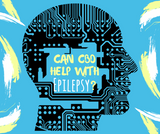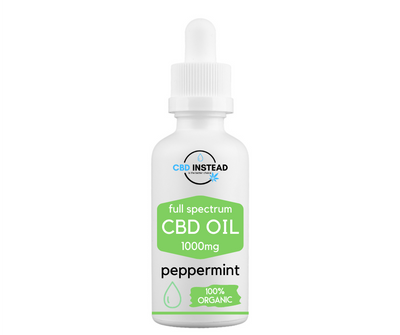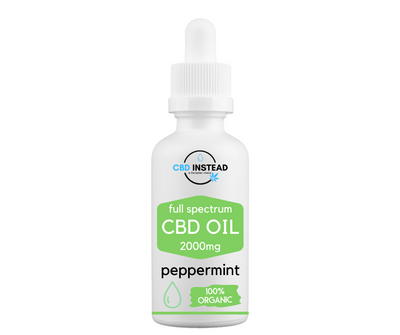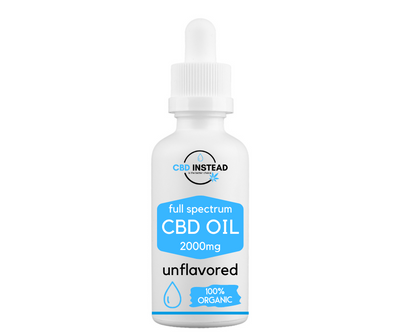How Does Exercise Effect The Brain
When it comes to exercise, your brain isn’t always the main priority. After all, for a lot of us, it’s about that hot summer bod or living long enough to see our grandkids. But there are some indirect and direct ways that exercise can benefit your brain that may give you even more motivation to hit the gym.
Exercise And Disease

One of the indirect ways that exercise helps improve your brain’s health is by reducing the risk of developing a disease or helping to reduce the severity of an illness you already have. Strokes, heart attacks, and even having diabetes can all make your cognitive function decline, but exercising can help you get back in control.
Exercise And Type 2 Diabetes
Diabetes increases your risk of damaged blood vessels, including the ones in your brain. Studies have shown that diabetes also affects the white matter in your brain, which is where all of your nerves send transmissions to one another. If your diabetes has done enough damage to your brain, you can develop vascular dementia or vascular cognitive impairment.
People who have type 2 diabetes have too much glucose in their blood either because they are insulin resistant or because they don’t produce enough insulin to help control glucose levels. When you exercise, your muscles use glucose without insulin, meaning that even if you have problems with your insulin levels exercising can help regulate the glucose in your blood. Not to mention, exercising can also help you lose weight and reduce insulin resistance which is a huge contributor to type 2 diabetes.
Exercise And Stroke
When you have a stroke, it is when you lose blood flow to your brain. Depending on where the stroke happens and how severe it is, it can cause:
- Paralysis
- Vision problems
- Changes in behavior
- Memory loss
- Speech problems
If the stroke happens in the brain stem opposed to one of the sides, it can cause someone to go into a “locked-in state” where they are unable to move below the neck or speak.
When you exercise, it helps to strengthen your blood flow. Studies have shown that those who exercise more are less likely to have a stroke, and for those who have already had one are less likely to have one again. Exercising also promotes plaque stability and strengthens the vascular wall functions which are a huge contribution to stroke prevention or management after a stroke.
Exercise And Heart Disease
Atherosclerosis, which is the buildup of fatty plaque in the arteries, and arteriosclerosis, which is when the arteries stiffen with age, are heart issues that exercise can help with and also cause damage to the brain by contributing to heart disease. Because there is a lack of healthy oxygen-rich blood going to nourish the brain, heart disease can also cause brain damage.
When you exercise, it encourages your heart’s arteries to dilate more readily. Exercise also helps the sympathetic nerve system to become less reactive, which is the system that controls your blood pressure and heart rate.
Exercise And Depression
Depression might not be the first thing that comes to mind when it comes to illnesses that exercise can help with, but depression can be just as dangerous as other diseases. Studies have shown that people who have depression have hippocampal shrinkage caused by this illness which impairs your memory and emotional regulation.
When you exercise, the first thing it does is give you a break from feeling miserable by giving you a runner’s high. A bunch of feel-good chemicals are swarming in your brain, something you might not get to feel very often because of depression.
Studies have shown that low-intensity workouts that you repeat over time have the most value when it comes to treating your depression. Because exercise supports cell growth and improves nerve connection, it helps to repair the hippocampus and relieve the symptoms of depression.
Boosting Your Brain With Exercise
So, you now know how exercise can indirectly help with your brain’s health by preventing or reducing the severity of diseases. But what if you aren’t at risk for these diseases? Can someone who is generally healthy still benefit mentally from exercise? Absolutely.
Exercise And Your Memory
The parts of the brain that control thinking and memory have shown in studies to be larger in people who exercise than those who don’t. Exercise also helps with certain things that cause cognitive impairment like stress, anxiety, sleep, and your mood.
Exercise And Grey Matter
The grey matter in your brain holds regions of the brain that have to do with muscle movement, memory, emotions, and sensory perception. This is a part of the brain that commonly degrades with old age. Studies have shown that exercise is a potent treatment option to enlarge grey matter in the brain helping to improve cognitive function and behavioral issues associated with brain atrophy.
Exercise And Brain Cell Growth
Studies have shown that when you exercise, it promotes the production of a chemical called BDNF. This is like your brains version of fertilizer, helping to encourage cell growth and restoration in your brain. The increase of BDNF in your brain can improve cognitive functions as well as help with depression and anxiety.
How Do You Work Out Your Brain?

There isn’t any one perfect exercise that will boost your brain. Everyone is different, and everyone needs something different. Though, there have been studies that have reported better brain health in aerobic exercises like swimming or cycling and low-intensity mind-body exercises like yoga and tai chi.
Pair Exercise With CBD For Optimal Brain Health!
CBD oil may also help with your brain health, help with exercising, and reduce the severity of or slow down the progression of an illness. By interacting with our body’s endocannabinoid system, CBD oil has shown in many studies to help promote regulation throughout the body helping to make your body function more efficiently.
CBD Oil And Heart Health
CBD oil may be able to help with your brain-boosting workouts by promoting a healthy heart. CBD oil has shown to lower blood pressure at low doses; it may help with heart arrhythmias, and reduce the inflammation of the heart.
CBD Oil And Diabetes
If your body is resistant to insulin, it may be because of a hormone called resistin being overproduced. CBD oil has shown in studies to inhibit the production of this hormone, helping your body to produce more insulin to control your glucose levels. CBD oil may also be able to help with weight loss as well as the cell damage that is caused by diabetes.
CBD Oil And Strokes
If you are at risk for a stroke, researchers have found that CBD oil may be able to help prevent the cell death caused by strokes. In rodent model testing, they also found that CBD oil helped improve blood flow in the cerebral cortex.
CBD Oil And Depression
Do you remember the chemical BDNF that is elevated by exercising? Studies show CBD oil may be able to elevate this chemical as well along with other chemicals that are normally lacking in people who have depression. CBD oil also elevates an endocannabinoid called anandamide which has shown to have mood-boosting properties helping with some of the emotional symptoms of depression.
CBD Oil And Memory
Is your memory something that you are trying to improve? CBD oil may be able to help. In studies, scientists found that CBD oil indirectly interacts with the hippocampus, helping to enhance its functionality. It may also be able to repair the damage that may be causing memory issues.
CBD Oil And Brain Fog
Exercise is a great way to combat brain fog, and you can take it a bit further by adding CBD oil. Brain fog is an umbrella term that covers cognitive issues caused by things like fatigue, depression, or fibromyalgia. CBD oil may be able to help with brain fog by:
- Easing symptoms of the illnesses that cause brain fog
- Promoting neuroprotection to reduce damage
- Promoting neurogenesis to repair damage already done
CBD Oil And Muscle Recovery
CBD oil isn’t just a great way to boost your brain power; it may also be able to help you with the workout itself. If you struggle with having muscle strain even after low-intensity workouts, using CBD topicals on your muscles can help relieve pain and tension.
CBD Oil And Energy
If you are struggling with getting into the workout routine because you are exhausted or struggle with fatigue, CBD oil may be able to help. CBD hemp oil has shown in studies to be a wake-promoting agent at small doses, as well as promoting the REM stage in your sleep at higher doses potentially aiding with energy from both sides of the spectrum.

Talk To Your Doctor
Whether you are just trying to boost your brain power or help recover brain power you have lost, be sure to let your doctor know what you are trying to accomplish. They may also be able to help you tailor your diet to helping your brain power to tackle this issue from all ends.
If you are adding CBD oil to your workouts, be sure to let your doctor know about this, too. They can help monitor your progress as well as make sure you don’t experience any of the uncommon side effects like nausea or drowsiness.






















